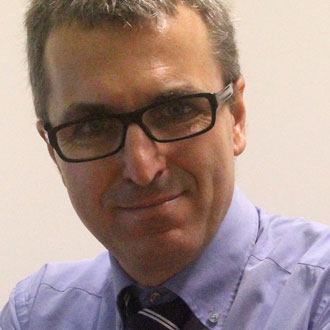For the last two and a half years, I have been involved in a libel action against the Daily Mail.
They published an article in April of 2012 which condemned me as ‘a foreign doctor’ who had subjected a bus driver patient to ‘a year of hell’ by having his driving licence taken away for no good reason.
I felt that launching a legal action against the paper was the only way to prove my innocence. Cases like mine can cost several millions of pounds, and if I lost I could lose my home and might have to emigrate, so I felt scared of the consequences for me and my family (my wife was expecting yet another baby at the time).
But I decided to risk it.
I first met the patient involved in January 2011 when he attended the surgery complaining of acute foot pain.
In the subsequent article published in the Daily Mail, a columnist alleged that I almost immediately diagnosed gout and without any investigation, tests or supporting evidence, misdiagnosed the patient as alcohol dependent and reported him to the DVLA. They stated that the patient had told me he might drink a pint or two after work and if he went out with his wife and friends at the weekend a couple of spirits, but that I had misunderstood him because of the ‘language barrier’.
I felt like the whole article was a gross misreprentation of the consultation and failed to establish how hard I had tried to help my patient and prevent a tragedy. The comments in the paper upset me and undermined my confidence.
In the aftermath of the publication of this article I struggled to look after patients with similar issues, as they would often bring the article up when talking about their problem. That made me paranoid thinking that all my patients thought I had a ‘pet hate’ for alcohol issues, which I did not.
In fact, as the court found, there had been no language barrier and no misunderstanding and I had been fully justified in reporting the patient to the DVLA. Evidence in the patient’s medical records showed that he had declared consuming serious amounts of alcohol on a regular basis since at least 2006. My diagnosis of gout was correct and a later scan showed a fatty liver. Further, the court found that I had made every reasonable effort to get the patient to engage and confront his alcohol problems but that, as he was in denial, he had rejected my efforts to assist.
When I was first contacted by the Daily Mail, on the day before the article was published, I was at pains to point out that, whilst I would like to comment, I was unable to do so without the patient’s consent. Then they provided me with a note from the patient stating that I had ‘authorisation to speak’ to the Daily Mail. I did not consider that this constituted a proper consent to disclose the patient’s records. The article accused me of being evasive and of hiding behind patient confidentiality. The court agreed that this form of consent did not permit me to disclose any medical information.
After the article was published, I first sought redress from the Daily Mail through the Medical Protection Society and then through the Press Complaints Commission. The paper refused to take my complaint seriously and months went by with my getting nowhere, so I took them to court.
My belief that I had acted properly was fully vindicated by the judge, who found in my favour on all counts. I was awarded substantial damages and my costs. I feel completely vindicated – the only way I can describe it is as if the whole thing had never happened.
After the court delivered its verdict, my solicitor Daniel Taylor told them: ‘Dr Serrano has today been fully vindicated by the court. It is a tribute to his courage that he never wavered in pursuing his action even though the newspaper pursued completely unfounded defences of truth and fair comment to the bitter end.
‘The right to a reputation is a vital human right, every bit as important as freedom of speech and a free press. It is right that doctors and other dedicated professionals should know that where they have been subject to untrue and unjustified allegations by a tabloid or any other publication, the law is there to protect them.’
My message to the profession, which often feels under siege by the press as a result of the constant stream of negative and often untrue articles, is that you can obtain redress, and the truth will out.
Dr Jose Antonio Serrano is a GP in Bexhill, Sussex.

















